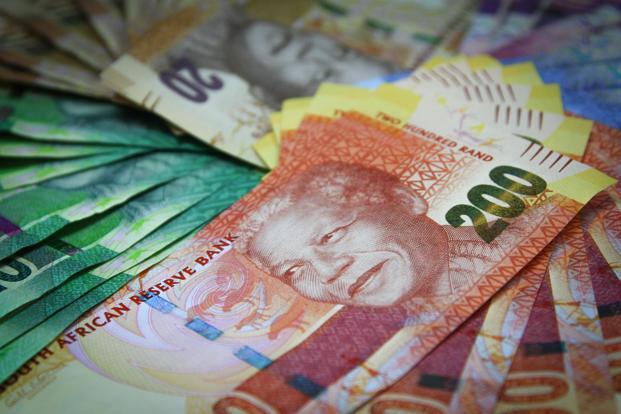
Cash dealers are venturing into the selling of airtime recharge cards to mop up cash from the market which they then sell at a premium.
BY TARISAI MANDIZHA/TATIRA ZWINOIRA/FIDELITY MHLANGA
Zimbabwe’s economy is battling a debilitating cash shortage that has been worsened by the introduction of bond notes. The coming in of bond notes has chased the United States dollar from the official system and fuelled the black market.
Standardbusiness heard last week that airtime dealers registered by mobile operators had now become cash dealers. They were buying recharge cards in bulk for onward selling to agents at a discount to make cash. Agents then resell to airtime vendors.
The new cash dealers are buying airtime in bulk for as much as $100 000 and they sell for a bit less, a development that attracts airtime agents to them. The airtime agents buy the recharge cards at a relatively less cost than they would buy from the mobile operators. The idea is to mop up the cash from the agents and resell the cash at a much higher premium — thus more than recovering the little loss incurred while selling recharge cards at a discount.
The cash dealers are now selling cash at around 20% premium.
An airtime wholesaler who refused to be identified, said the new trick was becoming very popular where cash dealers bought airtime worth as much as $100 000 and then sell the recharge cards for about 2 cents less than the normal wholesale price.
“Accredited NetOne dealers buy airtime in bulk and when they sell the airtime, they sell at a loss in US dollars; if they are bond notes they sell at the same price,” he said.
- Chamisa under fire over US$120K donation
- Mavhunga puts DeMbare into Chibuku quarterfinals
- Pension funds bet on Cabora Bassa oilfields
- Councils defy govt fire tender directive
Keep Reading
“If it’s Econet, they do the same but there is an advantage where the dealers can buy airtime recharge cards in bulk using EcoCash and sell at a loss. The idea is to hold cash and then resell the cash at a premium.”
The airtime wholesaler said he was concerned the dealers could also be selling directly to vendors, thereby distorting the market.
“Now the dealers are selling straight to the vendor or even the wholesaler, so business is becoming very low because the market has been distorted,” he said.
Other methods which are also being used to mop up the cash include the flooding of cheap products on the market.
A survey by Standardbusiness showed that apart from imported products, local products like Pascal chocolates, Chompkins, Spuds, Charhons biscuits and Lobels biscuits were being sold on the streets at lower prices compared to supermarkets.
Vendors on the street are selling Pascal chocolates at $1 for four, small packets of Chompkins at $1 for three, packet of Spuds at $1 each, biscuits at $1 for three or $1 for four, depending on which street one buys from.
A local vendor who refused to be identified said: “We get these products at a very low price; the idea is that at the end of the day we are able to give them cash, because the people who buy our products in the street pay in cash.”
Other cash-selling methods include putting a 10% premium for subscribers who want to do cash out transactions using mobile money.
“If you go to an EcoCash agent and say you want to do cash out transactions, you are told there is no money. If you offer to pay more, you will be told to put an extra 10% or 15% depending on which currency one wants,” an EcoCash agent said.
Econet Wireless Zimbabwe said it did not condone such malpractices by agents and would take such misconduct seriously to protect customers.
“All agents have strict operating guidelines that they must adhere to and they sign contracts with clear penalties for any activities which are illegal,” said Econet spokesperson Lovemore Nyatsine.
He said Econet had platforms where customers could report any agent selling cash.
Nyatsine said the only people who were eligible to purchase airtime in bulk were dealers and agents.
“Dealers and agents are allowed to purchase and there is no limit for cash on delivery purchases, while dealers with approved credit can purchase up to their prescribed credit limits,” Nyatsine said.
These cash-mopping practices come as the Reserve Bank of Zimbabwe (RBZ) has rolled out measures to frustrate the physical holding of cash.
The measures include the $200 weekly withdrawal limit and the $20 limit on cash back facilities.
Analysts, however, say the controls addressed the symptoms and not the problem.
The prevailing cash crisis has been compounded by the introduction of bond notes which came into the market last year. Analysts blame the bond notes for the disappearance of the US dollars. The bond notes trade at par with the dollar.
The cash shortages have fuelled the parallel market, with more bond notes finding their way into the unofficial system as individuals and companies search for the US dollar. Companies go to the parallel market to get US dollars for foreign payments.
Banks have been struggling to process foreign payments, thereby threatening the survival of companies.
At one of their popular hangouts – Roadport – a bus terminus in the central business district, scores of cash dealers can be seen holding wads of bond notes.
When the bond notes were first introduced, the currency traders used to put a mark-up of 10% if one wanted the United States dollars. Today, however, the US dollar is fetching a rate of between 20% and 25% to the pseudo currency.
This has seen the bond notes disappearing from the formal system, with RBZ accusing “ungrateful” foreigners in the reserved sectors of the economy of hoarding the bond notes.











